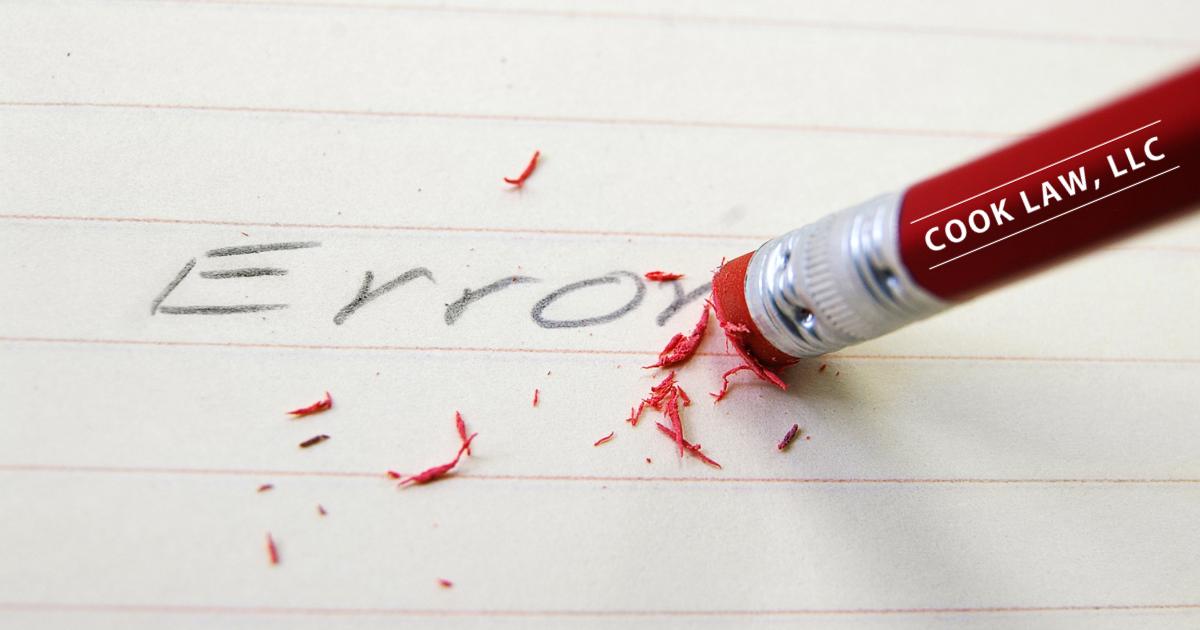Having errors on your credit report can feel like a dark cloud hanging over your financial head. Resolving credit report mistakes is actually easier than you might think. In this guide, we'll walk you through the steps to identify and remove errors from your credit report.
Why Fixing Errors in Your Credit Report is Crucial: A Deep Dive

Your credit report might seem like a dry document filled with numbers and dates, but it's actually a vital part of your financial well-being. Here's why keeping it accurate matters more than you think:
Loan Applications and Interest Rates: When you apply for a mortgage, car loan, or even a credit card, lenders use your credit report to assess your creditworthiness. Errors can bring your credit score down, making you appear riskier in their eyes. This can lead to loan denials or higher interest rates, which means you'll end up paying more for borrowing.
Impact on Insurance Premiums: Some insurance companies consider your credit score when setting your rates for things like car insurance or even renters' insurance. Errors on your report can potentially lead to higher insurance premiums, adding another unnecessary expense to your budget.
The Rental Dilemma: Landlords often check credit reports before approving tenants. Inaccurate information could make it harder to find a decent place to live.
Employment Opportunities: While not all employers check credit reports, some do, especially for positions involving financial responsibility. Errors on your report could raise red flags and hinder your job prospects.
Identity Theft: Inaccurate information on your credit report can be a sign of identity theft. Someone might be using your personal details to open new accounts in your name, racking up debt that damages your credit score.
Here's a breakdown of how even minor errors can snowball into problems:
Misspelled Name: A misspelled name can make it difficult for credit bureaus to match your report with your actual accounts. These errors can contain incorrect information or accounts you don't recognize.
Incorrect Account Information: Inaccurate balances or payment history can significantly impact your credit score. A missed payment you didn't make can bring your score down, making it harder to qualify for loans or favorable terms.
Outdated Information: A closed account you paid off in full can negatively affect your credit scores. An account listed as "closed" can appear delinquent if the closure date is missing.
Finding the Culprits: How to Spot Errors in Your Report
The first step is to obtain a free copy of your credit report. Thanks to the Fair Credit Reporting Act (FCRA), you're entitled to one free report annually from each of the three major credit bureaus: Experian, Equifax, and TransUnion. You can request your reports at Annual Credit Report: https://www.annualcreditreport.com/.
Once you have your reports, you'll want to focus on a few key areas:
Personal Information: Double-check your name, address, date of birth, and Social Security number (SSN - last four digits only).
Account Information: Look for delinquencies in your credit accounts, including account types, balances, and payment history.
Public Records: Make sure any bankruptcies or foreclosures are listed accurately, including the filing date.
Credit Inquiries: Verify that recent inquiries are legitimate, especially if you haven't applied for new credit.
Taking Action: The Easy Fix for Errors
Fixing errors on your credit report is a straightforward process:
- Identify the Credit Bureau: Note which credit bureau reported the error. Each bureau has its own dispute resolution process.
- Dispute the Error Online or By Mail: Most bureaus allow online disputes, but you can also submit a written letter. Their websites offer detailed instructions and dispute forms.
- Gather Evidence: Include copies of documents supporting your claim, like bank statements or receipts.
- Be Clear and Concise: Explain the error and why you believe the information is inaccurate.
- Keep Copies: Make copies of everything you send, including your credit report with the error highlighted.
The Waiting Game: What Happens Next?
The credit bureau has 30 days to investigate your dispute. They'll contact the information provider (like a bank or credit card company) to verify the accuracy. Here are some possible outcomes:
- Error Confirmed: If the information is wrong, the credit bureau will update your report and notify you.
- Error Disputed: You can request for the error to be reviewed again if it isn't resolved. You can also submit additional evidence.
- No Action Taken: If the credit bureau considers the dispute frivolous, they won't investigate. In this case, you have the right to include a statement in your report explaining the dispute.
Monitor and Maintain: Staying Credit Report Savvy - A Long-Term Play

Fixing an error in your credit report is a win, but it's just the first step. You've weeded out the errors, but to keep it flourishing, regular maintenance is key. Here's how to stay credit report savvy:
Annual Credit Report Reviews: Take advantage of your free credit report entitlement. Request a free report from each of the three major bureaus (Experian, Equifax, and TransUnion). Stagger your requests throughout the year for a more comprehensive quarterly check-up.
Credit Monitoring Services: Consider using a free credit monitoring service. These services can send you alerts whenever there are changes to your credit report. Changes to your report can include newly opened accounts, inquiries, or changes in account balances. This allows you to catch potential errors or identity theft early on.
Be Wary of Unexpected Inquiries: Review the "credit inquiries" section of your report. These inquiries happen when a lender checks your credit score during an application process (with your permission). If you see inquiries you don't recognize, it could be a sign of identity theft.
Set Up Alerts for Suspicious Activity: Many credit monitoring services allow you to set up alerts for unusual activity. This can give you an extra layer of protection and peace of mind.
Develop Good Credit Habits: Beyond monitoring, focus on building and maintaining good credit habits. Pay your bills on time and keep your credit card balances low compared to your limits. You'll also want to avoid opening too many new lines of credit at once. These positive behaviors will naturally improve your credit score over time.
Beyond Credit Reports:
An accurate credit report is a gateway to unlocking a brighter financial future. It empowers you to access better loan rates, secure your dream apartment, and potentially even get better insurance premiums. Take charge and monitor your report to maintain a healthy credit score.
While the steps outlined in this blog can certainly help you resolve many credit report errors, sometimes inaccuracies can be stubborn or complex. If you find that the dispute process isn't working in your favor, or you simply want expert guidance, don't hesitate to seek help from a credit repair attorney. Reputable attorneys like Cool Law LLC specialize in navigating credit reporting laws and can advocate on your behalf to ensure your credit report accurately represents your financial history.
